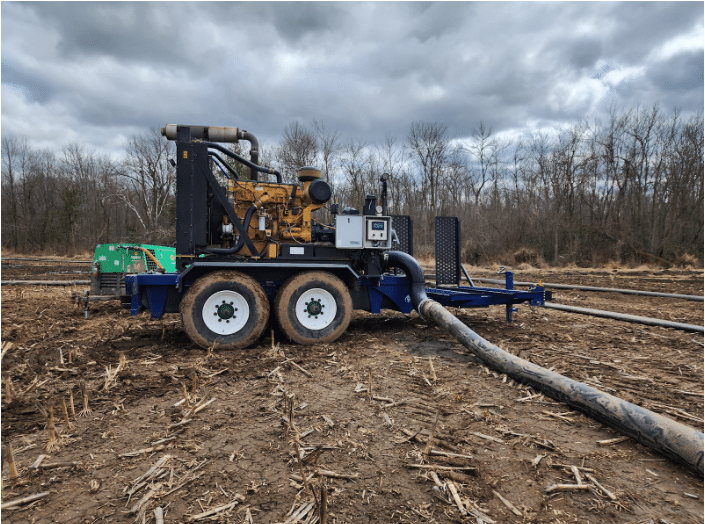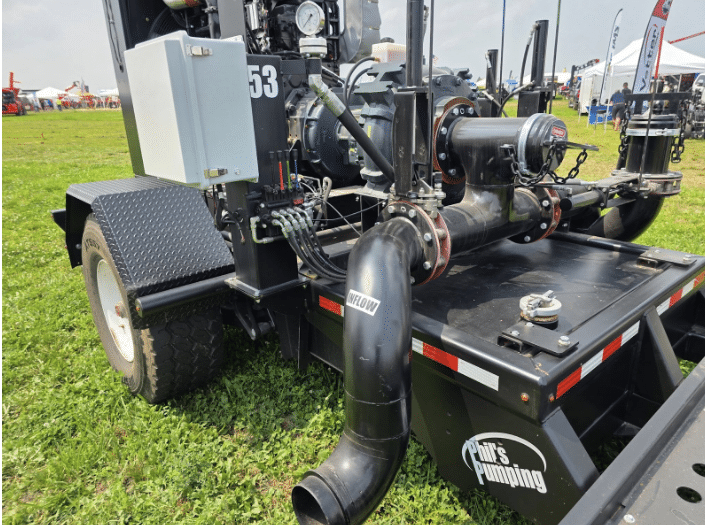Why Farmers Prefer Manure Pumps for Sale Over Outdated Systems

Modern manure pump in action—built for high-volume, efficient manure transfer across large farm operations.
Pumps for Sale
Efficient manure handling is a cornerstone of modern livestock operations. The right equipment doesn’t just move manure—it saves time, reduces labor, and improves nutrient management across the farm. Older systems often struggled with clogs, slow performance, and high repair costs. Today’s farmers are turning to modern manure pumps for sale that offer higher capacity, reliability, and efficiency. Built for the demands of today’s dairies and custom applicators, these pumps are transforming how farms manage manure across the U.S. and Canada.
The Problem with Outdated Manure Systems
Traditional manure handling systems—often built decades ago—weren’t designed for the high volumes and thicker consistencies common on today’s farms.
Older units typically required constant operator attention, frequent repairs, and manual clearing of blockages. Many were built for lighter materials, not the high-solids or sand-laden manure produced by modern herds.
The result? Wasted hours, higher maintenance costs, and slower turnaround times in the field. For farms managing thousands of gallons daily, outdated pumps simply can’t keep up.
How Modern Manure Pumping Equipment Changes the Game
Today’s liquid manure pumps are engineered for durability, power, and precision. Heavy-duty impellers and abrasion-resistant housings allow them to move high-volume manure—even thick or fibrous material—without clogging.
High-efficiency designs and better flow control help maintain steady pressure over long hose runs, especially when paired with layflat hose systems and booster pumps. These advancements mean faster application, smoother operation, and fewer maintenance headaches.
Modern manure pumps are also designed for compatibility—working seamlessly with dragline setups, agitation systems, and storage lagoons of any size.
Saving Time and Energy with Efficient Pumps
Time is a precious resource during application season. Every minute lost to a breakdown or a sluggish pump means missed opportunities in the field.
Modern manure pumps can move thousands of gallons per minute, helping farms cover more acres with less equipment and fewer crew members. Their higher efficiency reduces fuel consumption and wear on tractors or power units—helping operations finish jobs faster and more economically.
Reducing Costs Through Reliability
Farmers are often cautious about upgrading equipment—but the long-term math is clear. Investing in a reliable manure pump drastically cuts down repair bills and unplanned downtime.
Unlike older systems that require constant patchwork, newer manure pumping equipment is built for sustained use under heavy loads. Components are easier to service, wear-resistant, and designed for consistent output season after season.
Over time, fewer repairs and more uptime mean a lower cost per gallon pumped—and a stronger return on investment.

Phil’s Pumping manure pump—engineered for reliability, easy maintenance, and high-efficiency nutrient application.
Easier Operation and Maintenance
Modern manure pumps are designed for simplicity and safety. Many come equipped with:
- Hydraulic flow and pressure controls
- Quick-access inspection covers
- Easier priming systems and self-cleaning features
Operators can make adjustments on the fly, reducing the need for manual intervention. Maintenance tasks like greasing or replacing seals are faster, thanks to improved component accessibility.
The result: less time fighting equipment and more time focusing on the job.
Increasing Productivity on the Farm
Efficient manure management translates directly into better productivity across the operation. Farmers using modern manure pumps spend less time troubleshooting and more time focusing on livestock, crops, and logistics.
A dependable manure pump ensures timely nutrient application, better soil health, and stronger yields. That’s why both small farms and large custom applicators are seeking manure pumps for sale that are proven in the field, not just built in theory.
Why Farmers See Manure Pumps as the Future
Today’s farmers understand that modern pumps are not a luxury—they’re a necessity. The improved design, strength, and control of current manure pumps make them adaptable to any operation size.
Even smaller farms can benefit from portable or PTO-driven manure pumps that streamline daily handling and seasonal application. As technology continues to advance, farmers are finding it easier than ever to manage manure efficiently and sustainably.
With better performance, lower maintenance, and longer lifespan, modern manure pumping equipment is redefining what efficient farming looks like.
Final Thoughts
The evolution from outdated systems to modern manure pumps marks a major step forward for agriculture. While older systems once got the job done, they can’t match the reliability, speed, or precision of today’s equipment.
High-performance manure pumps for sale now deliver the durability and control needed for 21st-century farming—saving fuel, labor, and frustration while keeping farms compliant and productive.
Whether you manage a family dairy or run a full-scale custom pumping crew, upgrading to modern manure pumps means fewer breakdowns, faster results, and cleaner operations.
🌾 Simplify your operation and improve efficiency—explore Manure Pumps for Sale at Phil’s Pumping & Fabrication. Visit our website or follow us on Instagram for current inventory, tips, and equipment highlights.
FAQs
- Why are modern manure pumps better than old systems?
They handle higher volumes, resist clogging, and maintain steady flow under pressure—while using less fuel and requiring less maintenance. - Do manure pumps reduce operating costs?
Yes. They’re more efficient, need fewer repairs, and last longer, lowering overall costs compared to outdated systems. - Are manure pumps useful for small farms?
Absolutely. Even small farms can benefit from compact or PTO-driven pumps that make manure transfer and agitation faster and easier. - Are manure pumps environmentally friendly?
Yes. They reduce spillage, improve nutrient placement, and help protect soil and water quality through controlled application. - How long do manure pumps typically last?
With proper maintenance, a high-quality manure pump can operate effectively for 8–15 years, depending on use and volume handled.
